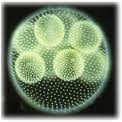After geocoding a database of police station locations to the georeferenced shapefiles for Washington DC, a basemap was produced to show police stations, crimes, roads (primary highways only), and census block groups. A graph of total crimes is presented as well.

In the second map, buffers were created at o.5, 1.0, and 2.0 mile intervals from each police station. The objective here is to then compare the incidence of crime and it's proximity to the nearest police station. The map shows that the southernmost census blocks in Washington DC have crime that occurs at a distance greater than 2.0 miles from the nearest police station. The inference here would be that it would be prudent to establish an additional police station facility in the southernmost zone of the municipality.

After separating three crime types (burglary, homicide, and sex abuse), density maps were produced using the Kernel Density operation in the Spatial Analyst toolbox.

Similarly, density maps were produced for Auto Theft after each auto theft incident was categorized into a group "morning", "afternoon",
"evening", and "night". The resulting density maps show that the greatest incidence of auto theft is during the evening block (6:00 pm to midnight).
 PowerPoint Presentation
PowerPoint Presentation

















